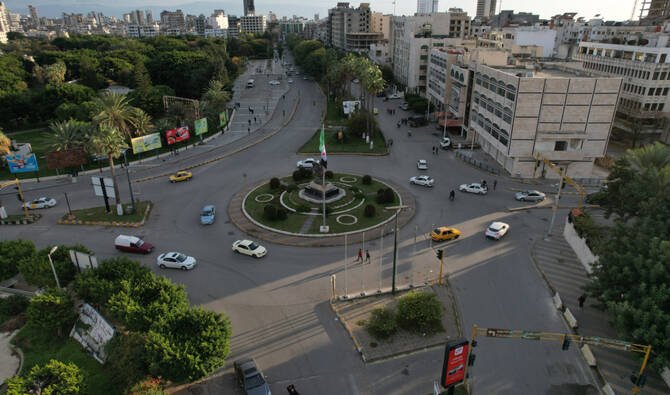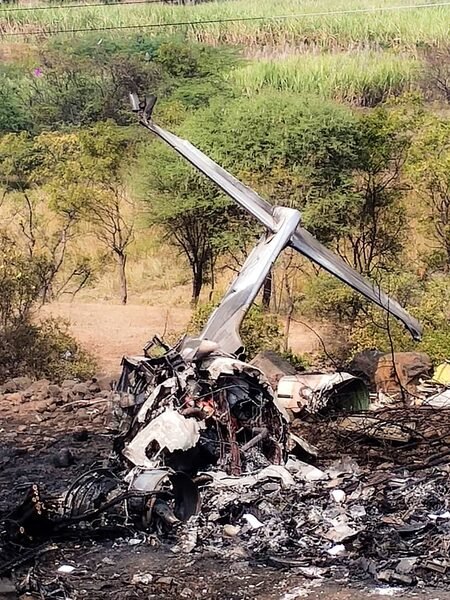
BEIRUT(RAHNUMA): Syrian authorities announced the reopening of Al-Arida border crossing with Lebanon, which closed in December 2024 due to an Israeli raid during the war with Hezbollah.
Syria’s Land and Sea Ports General Authority said in a statement that the border crossing located in Rif Tartus was reopening.
It informed travelers that Al-Arida border crossing would be manned on Tuesday morning, despite ongoing restoration and maintenance work, to facilitate movement during Eid Al-Adha.
The crossing is located on Lebanon’s northern border and connects the ports of Tripoli and Tartus.
Israeli warplanes struck the crossing on Nov. 27, 2024.
Ten days after the Syrian authorities removed the rubble and rehabilitated the crossing, it was struck again by Israel, leading to its permanent closure.
Dozens of Syrian families who had fled to Lebanon are now returning to their villages in Syria, while legal crossings are witnessing active overland tourism between Syria and Lebanon.
The two countries share five legal border crossings, including the Masnaa crossing, which is the closest to Damascus, and the Jdeidet Yabous crossing located in the Rif Dimashq Governorate.
Additionally, there is the Aboudieh crossing, which consists of a 45 km bridge passing through the Syrian village of Dabousieh, and the Jousieh crossing, situated in the Qusayr area of Rif Homs, which serves as the gateway from northern Bekaa to Homs and is located 40 km from the city.
The Talkalakh crossing in the Wadi Khaled area of northern Lebanon connects to Syrian territory in western Rif Homs, alongside Al-Arida crossing.
It was primarily designated for transporting goods and trucks carrying phosphate and sand from Syria to Lebanon, and other goods in the other direction.
Despite the measures that Syrian and Lebanese authorities have started to implement to regulate border crossings and close many illegal routes in the mountainous border regions, smuggling activities have resumed on both sides.
Recently, the Syndicate of Pharmaceutical Importers in Lebanon raised concerns, urging action to combat the issue of illegal, smuggled, and counterfeit medicines flooding the Lebanese market.
The Lebanese judiciary is continuing its investigations into the smuggling of medications from Egypt and Turkiye into Lebanon.
So far, they have detained several Lebanese and Syrian nationals suspected of being involved in these operations.
The investigations have focused on around 50 pharmacists and 60 pharmaceutical traders in Lebanon.
The Parliamentary Health Committee held a meeting dedicated to the issue of smuggled and counterfeit medicines.
Lebanon previously lifted subsidies on medicines — except for those designated for patients with chronic illnesses — during the economic crisis that struck the country in 2019.
Public Health Minister Rakan Nasreddine, Justice Minister Adel Nassar, and representatives from the Interior and Defense Ministries participated in the meeting, along with the heads of relevant security agencies.
MP Bilal Abdallah told Arab News the committee thoroughly discussed methods to regulate the pharmaceutical market in Lebanon and safeguard citizens from medication smuggling operations.
“The danger arises from smuggled medicines, which may be expired, improperly stored, or non-compliant with safety standards.
“This poses a serious threat to patients, particularly since smuggling often targets costly medications intended for cancer patients and individuals with chronic illnesses.
“The Ministry of Health has documented dozens of cases where citizens’ health deteriorated after consuming such medicines.”
Abdallah, who is both a legislator and a practicing physician, stated that the parliamentary committee had instructed customs and security forces to enhance inspection protocols.
He highlighted the positive influences of Syria’s political transition, stating that “Syrian authorities are now more effectively monitoring the situation and preventing smuggling through unauthorized border points.”
The Lebanese Pharmaceutical Importers Association, participating in parliamentary hearings, confirmed that all medications registered with the Health Ministry and distributed by international manufacturers are continuously available in Lebanese markets.
However, the association emphasized an important distinction regarding smuggled substances, clarifying that “products entering Lebanon through illegal channels cannot be regarded as legitimate pharmaceuticals, as authentic medications require verified component analysis and official documentation submitted to authorized regulatory bodies.”








